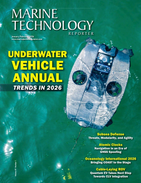Scientist Mine Ocean Depths for New Drugs
European scientists are planning to explore deep trenches off the coast of New Zealand in an effort to find new antibiotics. The project is called PharmaSea and is lead by Aberdeen University. The project says they will begin work at the Atacama Trench in the eastern Pacific Ocean, 161 kilometers off the coast of Chile and Peru and then move to New Zealand. They will also explore trenches in the Southern Ocean, in the northwest Pacific and off Norway. Project leader Marcel Jaspars said there had not been a completely new antibiotic registered since 2003. There was growing resistance to the drugs. Using fishing vessels, researchers will drop a sampler on a reel of cables to the trench bed to collect sediment. Scientists will then attempt to grow unique bacteria and fungi from the sediment that can be extracted to isolate novel drug-like molecules for pharmacological testing. Jaspars says marine organisms that live more than 6,000 meters below the sea level are considered to be an interesting source of novel bioactive compounds as they survive under extreme conditions. PharmaSea is funded by the European Union under its FP7 program. The collaborative project will build upon a highly interdisciplinary consortium of 24 partners from 14 countries from industry, academia and non-profit organizations. World-leading experts from Belgium, UK, Norway, Spain, Ireland, Germany, Italy, Switzerland and Denmark as well as partners from China, South Africa, Chile, Costa Rica and New Zealand are taking part in the PharmaSea project. PharmaSea brings together researchers from the areas of marine genomics, biosynthesis and chemical structure analysis as well as legal experts. Only a handful of samples have ever been taken from deep trenches and investigated, so the project is breaking new ground. "PharmaSea will not only be exploring new territory at the bottom of the oceans, but also new areas in ‘chemical space’. With our broad platform of cutting-edge bioassays to detect drug-like activity, we'll be testing many unique chemical compounds from these marine samples that have literally never seen the light of day. We're quite hopeful that we'll find a number of exciting new drug leads", says Dr. Camila Esguerra, Industrial Research Fellow and Lecturer with the Laboratory for Molecular Biodiscovery at the University of Leuven. The international team will employ strategies commonly used in the salvage industry to carry out the sampling. Using fishing vessels, researchers will drop a sampler on a reel of cables to the trench bed to collect sediment. Scientists will then attempt to grow unique bacteria and fungi from the sediment that can be extracted to isolate novel drug-like molecules for pharmacological testing. Partners from China, Chile, Costa Rica, New Zealand and South Africa will support the PharmaSea project. The first field tests will be carried out next autumn in the Atacama Trench in the Eastern Pacific Ocean, about 100 miles off the coast of Chile and Peru. The team will also search the Arctic waters off Norway and the Antarctic via Italian and South African partners. Deep trenches will also be accessed off New Zealand and China.









 February 2026
February 2026



